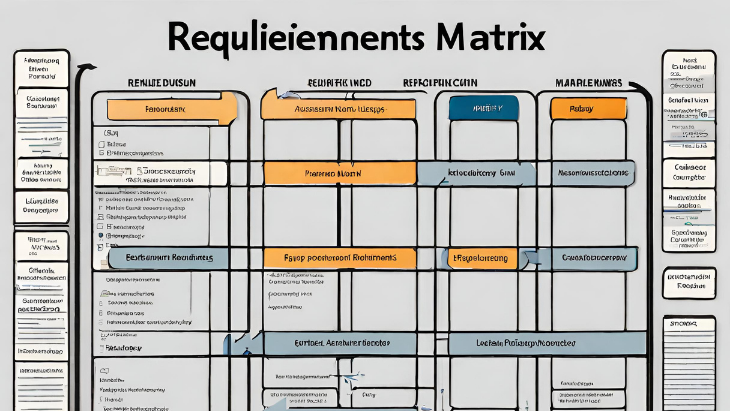Vulnerable narcissism is a personality disorder characterized by a fragile self-esteem and a deep need for approval and validation. People with vulnerable narcissism often feel insecure and inadequate, and they may be quick to take criticism personally. They may also be overly sensitive to rejection and humiliation.
Vulnerable narcissism is a personality disorder characterized by a fragile self-esteem and a deep need for approval and validation. People with vulnerable narcissism often feel insecure and inadequate, and they may be quick to take criticism personally. They may also be overly sensitive to rejection and humiliation.
What is vulnerable narcissism?
Here are some of the key signs and symptoms of vulnerable narcissism:
- Easily hurt by criticism or rejection
- Feels inferior to others
- Needs constant approval and validation
- Is overly sensitive to humiliation
- Has low self-esteem
- Is often withdrawn or isolated
- May have difficulty forming close relationships
The exact causes of vulnerable narcissism are unknown, but it is thought to be a combination of factors, including:
- Early childhood experiences
- Genetics
- Environmental factors
There is no cure for vulnerable narcissism, but there are treatments that can help people manage their symptoms and improve their quality of life. These treatments may include therapy, medication, and support groups.
If you or someone you know is struggling with vulnerable narcissism, it is important to seek professional help. A therapist can help you understand your condition and develop coping mechanisms.
Here are some tips for coping with vulnerable narcissism:
- Seek professional help. A therapist can help you understand your condition and develop coping mechanisms.
- Learn to set boundaries. It is important to set boundaries with others and protect yourself from being taken advantage of.
- Focus on your strengths. Everyone has strengths and weaknesses. Focus on your strengths and build your self-esteem.
- Take care of yourself. Make sure you are getting enough sleep, eating a healthy diet, and exercising regularly.
Vulnerable narcissism can be a difficult condition to deal with, but it is important to remember that you are not alone. With the right help, you can manage your symptoms and live a fulfilling life.
Symptoms of vulnerable narcissism
Vulnerable narcissism is a personality disorder characterized by a fragile self-esteem and a deep need for approval and validation. People with vulnerable narcissism often feel insecure and inadequate, and they may be quick to take criticism personally. They may also be overly sensitive to rejection and humiliation.
Here are some of the key signs and symptoms of vulnerable narcissism:
- Easily hurt by criticism or rejection
- Feels inferior to others
- Needs constant approval and validation
- Is overly sensitive to humiliation
- Has low self-esteem
- Is often withdrawn or isolated
- May have difficulty forming close relationships
People with vulnerable narcissism may also exhibit the following behaviors:
- They may be overly defensive or aggressive when they feel threatened.
- They may be clingy or demanding of attention.
- They may be self-deprecating or put themselves down.
- They may have difficulty trusting others.
It is important to note that not everyone who exhibits these behaviors has vulnerable narcissism. However, if you or someone you know is struggling with these symptoms, it is important to seek professional help. A therapist can help you understand your condition and develop coping mechanisms.
Here are some tips for coping with vulnerable narcissism:
- Seek professional help. A therapist can help you understand your condition and develop coping mechanisms.
- Learn to set boundaries. It is important to set boundaries with others and protect yourself from being taken advantage of.
- Focus on your strengths. Everyone has strengths and weaknesses. Focus on your strengths and build your self-esteem.
- Take care of yourself. Make sure you are getting enough sleep, eating a healthy diet, and exercising regularly.
Vulnerable narcissism can be a difficult condition to deal with, but it is important to remember that you are not alone. With the right help, you can manage your symptoms and live a fulfilling life.
Causes of vulnerable narcissism
The exact causes of vulnerable narcissism are unknown, but it is thought to be a combination of factors, including:
- Early childhood experiences: Children who experience neglect, abuse, or inconsistent parenting may be more likely to develop vulnerable narcissism.
- Genetics: There is some evidence that vulnerable narcissism may be partly genetic.
- Environmental factors: Social and cultural factors may also play a role in the development of vulnerable narcissism.
People with vulnerable narcissism often have a deep-seated fear of being rejected or abandoned. This fear may be rooted in early childhood experiences, such as being neglected or abused by caregivers. People with vulnerable narcissism may also have a genetic predisposition to this condition.
Environmental factors, such as social and cultural expectations, may also play a role in the development of vulnerable narcissism. For example, in cultures that place a high value on success and achievement, people with vulnerable narcissism may be more likely to develop a fragile self-esteem.
It is important to note that not everyone who experiences these factors will develop vulnerable narcissism. However, these factors may increase the risk of developing this condition.
If you or someone you know is struggling with vulnerable narcissism, it is important to seek professional help. A therapist can help you understand your condition and develop coping mechanisms.
Here are some tips for coping with vulnerable narcissism:
- Seek professional help. A therapist can help you understand your condition and develop coping mechanisms.
- Learn to set boundaries. It is important to set boundaries with others and protect yourself from being taken advantage of.
- Focus on your strengths. Everyone has strengths and weaknesses. Focus on your strengths and build your self-esteem.
- Take care of yourself. Make sure you are getting enough sleep, eating a healthy diet, and exercising regularly.
Vulnerable narcissism can be a difficult condition to deal with, but it is important to remember that you are not alone. With the right help, you can manage your symptoms and live a fulfilling life.
How to cope with vulnerable narcissism
Vulnerable narcissism is a personality disorder characterized by a fragile self-esteem and a deep need for approval and validation. People with vulnerable narcissism often feel insecure and inadequate, and they may be quick to take criticism personally. They may also be overly sensitive to rejection and humiliation.
There is no cure for vulnerable narcissism, but there are treatments that can help people manage their symptoms and improve their quality of life. These treatments may include therapy, medication, and support groups.
If you or someone you know is struggling with vulnerable narcissism, it is important to seek professional help. A therapist can help you understand your condition and develop coping mechanisms.
Here are some tips for coping with vulnerable narcissism:
- Seek professional help. A therapist can help you understand your condition and develop coping mechanisms.
- Learn to set boundaries. It is important to set boundaries with others and protect yourself from being taken advantage of.
- Focus on your strengths. Everyone has strengths and weaknesses. Focus on your strengths and build your self-esteem.
- Take care of yourself. Make sure you are getting enough sleep, eating a healthy diet, and exercising regularly.
Here are some additional tips that may be helpful:
- Challenge your negative thoughts and beliefs. When you have a negative thought about yourself, ask yourself if it is really true. Is there any evidence to support that thought?
- Practice self-compassion. Be kind to yourself and forgive yourself for your mistakes.
- Connect with others. Spend time with people who support and accept you for who you are.
- Find healthy ways to cope with stress. Exercise, meditation, and journaling can be helpful ways to manage stress.
Coping with vulnerable narcissism can be a challenge, but it is possible to live a fulfilling life with this condition. With the right help and support, you can learn to manage your symptoms and build a strong sense of self-worth.
How to deal with a vulnerable narcissist in a relationship
Vulnerable narcissism is a personality disorder characterized by a fragile self-esteem and a deep need for approval and validation. People with vulnerable narcissism often feel insecure and inadequate, and they may be quick to take criticism personally. They may also be overly sensitive to rejection and humiliation.
Relationships with vulnerable narcissists can be challenging. People with this condition may be demanding, controlling, and manipulative. They may also be quick to anger and jealousy.
If you are in a relationship with a vulnerable narcissist, there are some things you can do to cope:
- Set boundaries. It is important to set boundaries with your partner and to enforce them consistently. This will help to protect yourself from being taken advantage of.
- Communicate openly and honestly. Talk to your partner about your needs and expectations. Be honest about your feelings, both positive and negative.
- Seek professional help. If you are struggling to cope with your partner’s behavior, it may be helpful to seek professional help. A therapist can help you understand your partner’s condition and develop coping mechanisms.
Here are some specific tips for dealing with common behaviors of vulnerable narcissists in relationships:
- If your partner is overly critical, try to avoid taking it personally. Remember that their criticism is often a reflection of their own insecurities.
- If your partner is demanding, try to set limits on their demands. Let them know that you are willing to help, but that you also have your own needs and priorities.
- If your partner is controlling, try to assert yourself. Let them know that you are a capable and independent person.
- If your partner is manipulative, try to identify their manipulative tactics. Once you understand their tactics, you can start to resist them.
It is important to remember that you are not responsible for your partner’s behavior. If your partner’s behavior is causing you pain, you have the right to leave the relationship.
Here are some signs that it may be time to end the relationship:
- Your partner’s behavior is causing you significant emotional distress.
- You feel like you are walking on eggshells around your partner.
- You feel like you cannot be yourself around your partner.
- You are afraid of your partner.
If you are considering ending the relationship, it is important to do so in a safe and healthy way. Talk to your partner about your decision and explain your reasons. Be prepared for your partner to react negatively.











